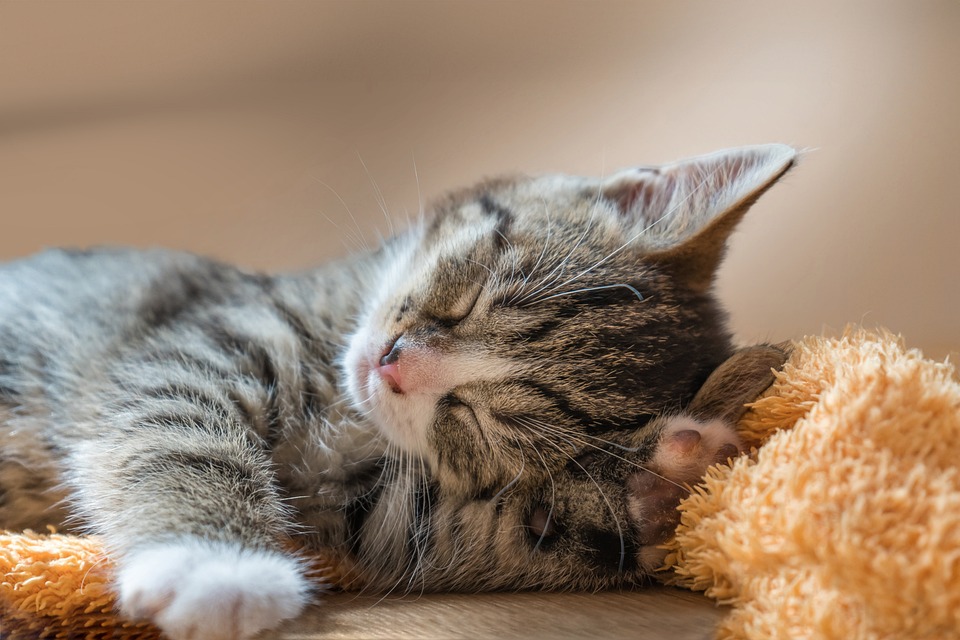Article: Recognizing Signs of Common Cat Allergies
Introduction:
Cat allergies can be a frustrating and uncomfortable experience for both cats and their owners. Allergies in cats can be caused by a variety of factors, including environmental allergens, food sensitivities, and even parasites. Recognizing the signs of common cat allergies is crucial in order to provide proper care and alleviate your furry friend’s discomfort. In this article, we will explore the symptoms, causes, and treatment options for cat allergies, along with a FAQ section to address common concerns.
Common Symptoms of Cat Allergies
1. Excessive Scratching and Licking: One of the most common signs of cat allergies is persistent scratching or licking. Cats may excessively groom certain areas of their body, leading to hair loss, skin irritation, and the formation of skin lesions.
2. Sneezing and Watery Eyes: Cats with allergies often exhibit symptoms similar to those experienced by humans with hay fever. Frequent sneezing, nasal congestion, and watery eyes are typical signs of respiratory allergies in cats.
3. Itchy, Red, or Swollen Skin: Cat allergies can manifest as dermatitis, causing the skin to become red, itchy, and swollen. Cats may develop hives, rashes, or hot spots due to allergic reactions.
4. Vomiting and Diarrhea: In some cases, cats may experience gastrointestinal symptoms as a result of allergies. Frequent vomiting, diarrhea, or changes in appetite can indicate an allergic response to certain foods or ingredients.
Causes of Cat Allergies
1. Environmental Allergens: Cats can be allergic to various environmental allergens, such as pollen, dust mites, mold spores, and certain chemicals. These allergens can trigger allergic reactions when inhaled or when they come into contact with the cat’s skin.
2. Food Allergies: Just like humans, cats can develop food allergies or sensitivities. Common culprits include chicken, beef, dairy products, and grains. Food allergies may cause digestive issues, skin problems, or even ear infections in some cases.
3. Flea Allergy Dermatitis: Flea bites can cause severe allergic reactions in some cats. Even a single flea bite can trigger intense itching and discomfort, leading to excessive scratching and potential skin infections.
Treatment Options for Cat Allergies
1. Identifying the Allergen: If you suspect your cat has allergies, it is essential to identify the allergen causing the reaction. Consult with your veterinarian to perform allergy testing, which may involve blood tests or skin patch testing. This will help you pinpoint the specific allergens and take appropriate measures to avoid or minimize exposure.
2. Environmental Control: Minimize your cat’s exposure to environmental allergens by keeping your home clean and dust-free. Regularly vacuuming carpets, washing bedding in hot water, and using air purifiers can help reduce allergens in the environment.
3. Dietary Changes: If your cat has food allergies, your veterinarian may recommend a hypoallergenic diet or an elimination diet to identify the specific allergens. These specialized diets often consist of novel protein sources and limited ingredients to prevent allergic reactions.
4. Medications and Supplements: Depending on the severity of your cat’s allergies, your veterinarian may prescribe antihistamines, corticosteroids, or immunosuppressive drugs to alleviate symptoms. Additionally, supplements like omega-3 fatty acids can help improve your cat’s skin health and reduce inflammation.
FAQs about Cat Allergies
Q1. Can cat allergies be cured?
A1. While there is no known cure for cat allergies, symptoms can be managed effectively through environmental control, dietary changes, and medications.
Q2. Can cats develop allergies over time?
A2. Yes, cats can develop allergies at any age, even if they have not exhibited any allergic reactions in the past.
Q3. Can cat allergies be mistaken for other health conditions?
A3. Yes, the symptoms of cat allergies can sometimes resemble those of other health conditions. It is crucial to consult with a veterinarian for an accurate diagnosis.
Q4. Can humans be allergic to cats?
A4. Yes, humans can be allergic to cats. Cat allergies in humans are often caused by a protein called Fel d 1, found in a cat’s saliva, urine, and dander.
Q5. Are there any natural remedies for cat allergies?
A5. Some natural remedies, such as herbal supplements or hypoallergenic shampoos, may provide relief for mild cases of cat allergies. However, it is essential to consult with a veterinarian before trying any natural remedies.
In conclusion, recognizing the signs of common cat allergies is vital for providing proper care and ensuring your feline friend’s well-being. If you suspect your cat has allergies, consult with a veterinarian to determine the appropriate treatment options and management strategies. By taking proactive measures, you can help your cat lead a comfortable and allergy-free life.








